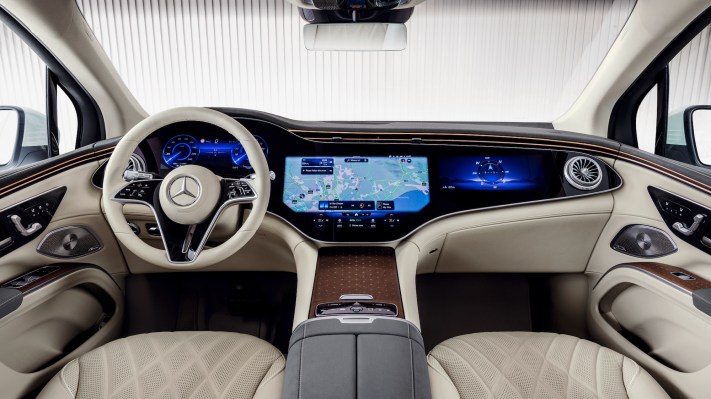Mercedes-Benz began production of its first battery-electric SUV for the U.S. market on Thursday, fronting a movement expected to bring auto manufacturing onshore over the next decade.
The 2023 Mercedes-Benz EQS SUV will be made at the automaker’s plant in Tuscaloosa, Alabama, using batteries supplied by a battery factory it opened nearby in Bibb County in April.
Spurred by inflation, geopolitical conflict and volatile supply for materials, global automakers have begun large-scale efforts to move operations to the U.S. The Inflation Reduction Act passed by Congress this month intends to turbocharge the growth by providing manufacturers with $40 billion in tax credits and requiring that EVs eligible for tax credits be made with more American-made parts.
So far, car companies and suppliers have announced more than $38 billion in investment through 2026 to boost battery production in the U.S., according to AlixPartners. Major projects include Panasonic’s $4 billion battery plant in Kansas, which is slated to be one of the largest lithium-ion battery factories in the world, and Hyundai’s $5.5 billion EV and battery manufacturing facility in Georgia.
The five-passenger EQS SUV is based on Mercedes’ largest utility vehicle, the GLS, and underpinned by the same modular architecture used for Mercedes’ EQS flagship and EQE midsize sedans. Using a common platform allows the automaker to scale operations quickly.
An optional third row boosts the SUV’s seating capacity to seven, making the EQS SUV one of the largest fully electric utility vehicles in the popular full-size utility vehicle category. It features the MBUX Hyperscreen, a three-screen system that merges under scratch-resistant glass to appear as a single, 56-inch display.
The SUV will come in two flavors: the 335-horsepower EQS 450+ base model and a high-performance EQS 580 4MATIC version that achieves 536 horsepower. It can travel more than 372 miles on a full battery charge, according to WLTP estimates.
Pricing has not been announced.
